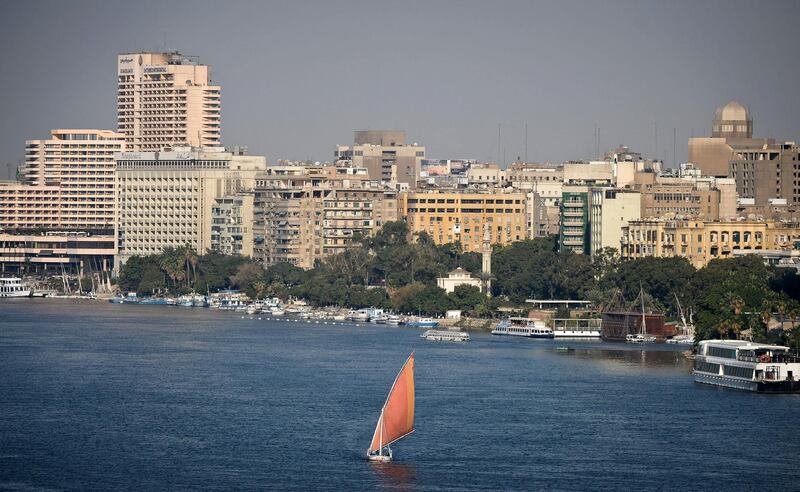Egypt's fiscal consolidation plans remain on track, with the government's deficit set to reduce further as the country continues to enjoy strong growth, according to a new report.
The Institute of International Finance (IIF) forecast gross domestic product growth of 5.5 per cent for Egypt this year, although it said there were downside risks to this due to a "less supportive external environment" as fears over the state of the global economy grow.
Egypt recently concluded a three-year programme with the International Monetary Fund that saw it receive a $12 billion (Dh44.07bn) loan tied to reforms such as a free float of its currency, a reduction in fuel subsidies and an increase in its tax take.
"The programme with the Fund achieved its key objectives of macroeconomic stability. Growth has accelerated, unemployment has decreased … and the public debt ratio has started to decline," said the report by the IIF's chief Mena economist, Garbis Iradian.
Core urban inflation in Egypt fell to a four-year low of 8.7 per cent in July, Egypt's official statistics agency, Capmas, said earlier this month. Headline inflation had reached as high as 33 per cent in June 2017 following the currency's free float a year earlier.
As a result, the IIF expects Egypt's central bank to recommence monetary easing, by bringing down the country's overnight lending rate, which has stood at 17.75 per cent since March. It also said the government's fiscal deficit will continue falling. At the end of its 2018/19 financial year in June, Egypt's deficit stood at 8.2 per cent of GDP, with forecasts suggesting this will narrow to 7.2 per cent by June next year as more subsidies are cut.
Indeed, the main threat seems to be from the global economy and fears that pressure on emerging markets could cause investment outflows. Non-resident capital inflows weakened to $16bn in 2018/19 from $27bn in 2017/18 and could fall further.
However, in a separate note London-based Capital Economics said it remained sanguine about external threats to Egypt's economy. Although the country's external debt has increased steadily since 2015 and breached $100bn earlier this year, the country's foreign reserves have also grown - to $44bn, from just $16bn in 2016. Moreover, a run on its currency is less likely given that it now looks fairly valued.
"What’s more, the fact that Egypt’s current account deficit has narrowed to just 1 per cent of GDP from 7 per cent a few years ago, also suggests a large exchange rate adjustment is unlikely," Capital Economics said. "The upshot is that, unless external borrowing is ramped up much further, Egypt’s external debt shouldn’t pose a significant risk."








